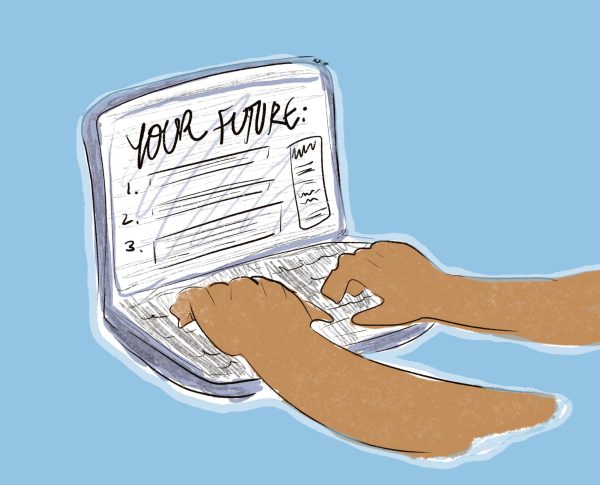Picking up the Pieces: The Aftermath of the War in Iraq
The War in Iraq may have come to an official end, but the effects of this conflict will be felt at home and abroad for years to come.
According to the United States government, the War in Iraq ended August 31st, 2010. But as with almost any decision of remote importance, the true situation is not so simple. Even when this war “ended” there were 50,000 American soldiers on the ground within Iraq’s borders. It is projected that this number won’t reach zero until nearly a year from now. And as is evident from the broken promises and missed due dates in recent years, that date is a blind estimate at best. You can’t plan wars; they have a tendency to defy orders.
As American, and coalition forces return home they bring facts and figures with them. According to the Washington Post, the war cost $12 billion per month. At seven years and five months that totals more than $1.5 trillion.
Of course, that number accounts for neither the costs prior to or post the official start and end dates of the conflict, nor any expenses not part of the defense budget. Furthermore, there is really no way to accurately tabulate the opportunity cost of that money. There is no way to determine what would have happened if we had kept that $1.5 trillion for unemployment, health care or education.
The Iraqi Body Count project estimates that more than 107,000 Iraqi civilians were killed between March 2003 and October 2010. This number can’t begin to illuminate the parents, children and families affected, nor can it measure the loss of over 100,000 productive citizens to the workforce.
As of May 28, 2010, there were 4,404 American soldiers dead and wounded in action. We can’t rewind and see how our country would be different or improved because of the ideas of those Americans killed before their time.
As the War in Iraq comes to a measurable close, changes that are harder to quantify come to light. The ways in which this series of events will shape a generation can’t be easily calculated, but it is certain that people around the world will be feeling the shock waves for decades to come.
Bombs
Although many at home, far from the scene of the fighting, view the draw down of American troops as a sign of less American involvement, Trevor Grish, a mechanic who served 13 months in Iraq, doesn’t think so.
“Our influence is never going to be out of the Middle East. Never. Never. We’ll be there forever. Once we’re there we are permanently there. To what extent is up in the air,” he said.
Grish enlisted in the army while still in high school and was deployed to Iraq in January of 2004. His time in combat was perhaps typical of a soldier in a war zone, but a far cry from the existence of his peers getting used to college professors and dorm life.
“There was stuff blowing up everyday… You get attacked 6-7 times a day. You just get used to bombs dropping on you all day,” said Grish.
Stationed at Joint Base Balad, also called Camp Anaconda, near Balad, Iraq, Grish lived in one of the busiest hubs of the American war effort. As one of the largest air bases in Iraq, it was a prime target for Taliban fighters.
Grish relates the colloquial nicknames “Triangle of Death” and “Highway of Death” almost fondly. These places were a normal part of daily life for Grish and those serving with him. Although repetition may have played a part, necessity certainly dictated that soldiers become familiar with the dangers of their trade.
“Those first couple of weeks you’re really worried, but when you are there for 3-4 months, sometimes 12, sometimes 15, you hear an explosion and you just think ‘I really don’t care’…you have to get used to it. You don’t have a choice. If you don’t get used to it, you’re going to make yourself crazy,” he said.
He talks about his experiences in Iraq freely, but Grish has clearly been affected by the tragedy experienced there. Although no one from his unit was killed, he witnessed many close calls and near misses. Vigilance was imperative. It took Grish time to adjust to civilian life after such harrowing circumstances.
“It is just you don’t have to always be so alert or aware of your surroundings… For me it didn’t [take getting used to]. That is definitely not true for everybody. For some people they never really adjust, There will be those people who when they hear a noise they think something is happening. I was like that for the first few weeks because you are so accustomed to that happening,” he said.
Grish was even personally acquainted with a soldier who was killed by an IED.
“The thing that hit me close to home was we were out on the road and we looked over an there was this truck that got blown up and there were all these soldiers around this guy so you knew something bad happened,” he said. Grish only later realized who the injured soldier was.
“My parents sent me an email a couple days later. My sister’s ex-boyfriend. They said he was killed in Iraq. And they said he was killed two days ago. And they said he was killed on highway Tampa. And that was when I realized that was probably him. I really didn’t know the kid well at all, but just the fact that he was somewhat into the family,” said Grish.
He explained that analyzing tragic events means falling victim to a viscous cycle of what-ifs. “And that got me thinking what if that was us coming down on that side of the road instead. And that was the worst point that I had. It took me a few days to get over that because that could’ve been me the other way around. You don’t know that. That was the worst thing that happened. He died,” said Grish.
Listen to Grish speak about his experience with the enlistment process.
Battle Scars
Although some traumatic experiences can be shaken off within days, others are more difficult to remove. Grish speaks of his time in Iraq as completely separate from his life in Michigan, as if it exists in another world entirely.
Grish said of his return to civilian life “As soon as we got on the plane to fly back to Germany I felt like I was never even there…it was the day we left and I felt like I had never even been there.”
Grish adjusted to civilian life much more easily than many of his fellow soldiers, but he was profoundly changed by his time overseas.
He may have escaped the horror of debilitating physical injuries, but Grish brought home wounds more difficult to see. The way he perceives the world around him has been forever affected.
Even after being puzzled by his grandfather’s distrust of people of Japanese heritage as a child, Grish has come to appreciate his suspicion.
Fighting in Iraq caused Grish to become apprehensive of the civilians he was supposedly protecting.
“I didn’t trust a single one of them. Everyday we’d have lines of them show up at the front gate because we’d pay these guys…to do manual labor on post. And I absolutely hated it because you had no idea who the guy was,” he said.
Grish’s fears were realized during his time in combat. Having to be suspicious of every civilian who he saw took its toll on his attitude.
“It happened 90 miles from my base. Some stupid [civilian] walks into the mess tent and it’s like 12:30 in the afternoon and he just blows himself up and kills 25 people. That is like, this is why I wanted to have nothing to do with these people. I didn’t trust a single one,” said Grish. “I didn’t want to talk to them. I didn’t want to be their friend. We’re driving down the side of the road and they’re like ‘Oh mistah mistah, food food’ and I’m like shut the hell up or I’m going to kill you.”
Grish’s words may seem harsh, but so was the situation he confronted on a daily basis. When fighting a faceless enemy without a uniform, the battle lines aren’t easily delineated.
“[Y]ou don’t know who anyone is out there. They have kids holding weapons. They have women with weapons. You know we’re not supposed to kill women and children, but if they have a gun we’re like what are we supposed to do? Or if they shoot us and then drop their gun and put their hands up we’re not supposed to shoot them. It is just that you don’t know out there who is and who isn’t so it’s easier just not to believe anybody,” he said.
This story paints a different picture than a heroic soldier kissing babies or shaking the hand of a village chief. And while it is certain that Grish’s sentiments aren’t shared by all, he presents an alternative argument.
Perhaps these feelings can be justified on the battlefield or in a war zone, but Grish, whether intentionally or not, has held onto them.
“I hate being around them…I hate being on an airplane with them…if you’re from the Middle East I don’t want to have anything to do with you at all,” said Grish.
It may be hard to imagine that an educated teenager from Ann Arbor holds these views, but Grish recalls his grandfather having similar feelings after fighting in WWII.
“I always wondered why do you hate these people? Is it because of WWII? WWII happened 30, 40 years before he died…I couldn’t understand how he hated this group of people for that many years. An then I get sent to this place where I don’t want to be and I’m getting shot at because I’m American and I completely understand how he feels,” he said.
These views have followed Grish in the five years since he returned from his deployment.
“There is nothing anyone can ever say to me for the rest of my life that is going to change my mind and maybe my kids or grandkids are going to be like ‘daddy why do you hate these people?’ [But] I’m going to be the same way,” he said.
Grish’s experiences in Iraq have clearly shaped his opinions even in civilian life. His case is representative of one cost of war that can’t be measured with numbers and statistics. The emotional toll—on the feelings of soldiers, Iraqi survivors, and American civilians—is only beginning to be recognized.
Listen to Grish speak about the American war effort.
Beginnings
Grish doesn’t look at his military career as a failure or a mistake. In fact, he is planning to reenlist. Grish is currently in the ROTC Officer’s Training Corps at Eastern Michigan University.
“[I]t is a two-year program. Once I do that I’m going to apply for active duty. So the chance of going back there is probable. Depending on the politics we’re supposed to be pulling out. A lot of people are already gone, but the likelihood of going to Afghanistan is pretty high,” he said.
To Grish, the military is a career he can see himself maintaining.
“I think that the military is a really easy job especially if you’re enlisted, because your responsibility, especially at the start is next to nothing…I don’t mean the combat getting attacked is easy… I mean easy more in the sense that just the really military lifestyle. The nine to five job, doing PT, doing random details, doing guard duty, doing the field training exercises even, your normal life is really straightforward and simple,” said Grish.
Joella Bennett, a senior at Community High School, plans to make a military career her lifestyle. Coming from a military family, Bennett has had plans to join the army since her freshman year in high school.
“You have so many opportunities when you are in the army. They’ll pay for your school and once you retire you can have a second career, which most people can’t do and have good benefits. You can travel to see the world and places you never can go as a civilian. Yeah it’s going to be hard, but it is worth it,” she said.
Bennett downplays the obvious dangers of serving in the military. She believes there is more to being in the army than simply holding a gun.
“People always assume and associate that being in the military is a really bad thing and you’re going to die but it actually isn’t. There is lots of stuff you can do other than fighting, like being a doctor or doing special ops or intelligence. You don’t have to fight,” she said.
This is becoming more true as the United States pulls out of Iraq and plans to draw down numbers in Afghanistan. As Bennett begins her career and Grish reenlists, the focus could well move toward the non-combat positions to which Bennett refers.
Listen to Grish speak about patriotism.
Burdens
Bennett plans to begin her career in a vastly different way than Grish. She hopes to attend Norwich Military Academy and train to become a helicopter pilot. While Grish entered the service before attending college, Bennett will train while taking classes.
Both joined the military to serve their country but Bennett feels she has something to prove.
“It was just a chance to prove to people that I can actually do stuff other than the stereotypical stay at home mom or anything…I’m just surrounded by the army 24/7 so it is kind of hard not to want to do something like this,” said Bennett.
Although Bennett’s generation is just beginning to think about careers in the armed services, both Bennett and Grish believe young people today have a role to play.
“I think it is [our job] just being there. Not necessarily that we have to go serve but being ready in case they need people. There are always going to be people who want to go into the military so it is not really that big of an issue it is more just whether we are willing to go [out of the country] I think,” she said.
Grish agrees. “You’ve got to have those people that enlist… There are enough people out there that really care what happens and maybe it’s the kids who have parents who are really hurt by the economy. There is nothing we can do about this but you can…you need those people to make change or make a stand and make a difference,” he said.
Listen to Bennett describe growing up in a military family.
For all there differences one thing is clear: Bennett and Grish embrace a personal obligation to better the country through military service.
Although he may not agree with all government policies or decision-making, Grish still feels obligated to make a difference.
“It is kind of like those bumper stickers ‘support our troops.’ There are a lot of people who don’t agree with what is going on, but that doesn’t mean you can’t support the people who are out there doing the job. I think that is two different things. You can be patriotic and not completely agree with what is going on,” said Grish.
As Bennett starts on the road to her military career she and her peers will have to contend with the legacy of the conflicts in Iraq and Afghanistan.
Even after the last American watches the deserts of Baghdad recede out of the airplane window, this war will shape political policy and popular belief for many years.
Even if Americans and their allies are not dying in the Middle East, our lives will be shaped by the battle scars—both mental and physical—of our soldiers returning home.








